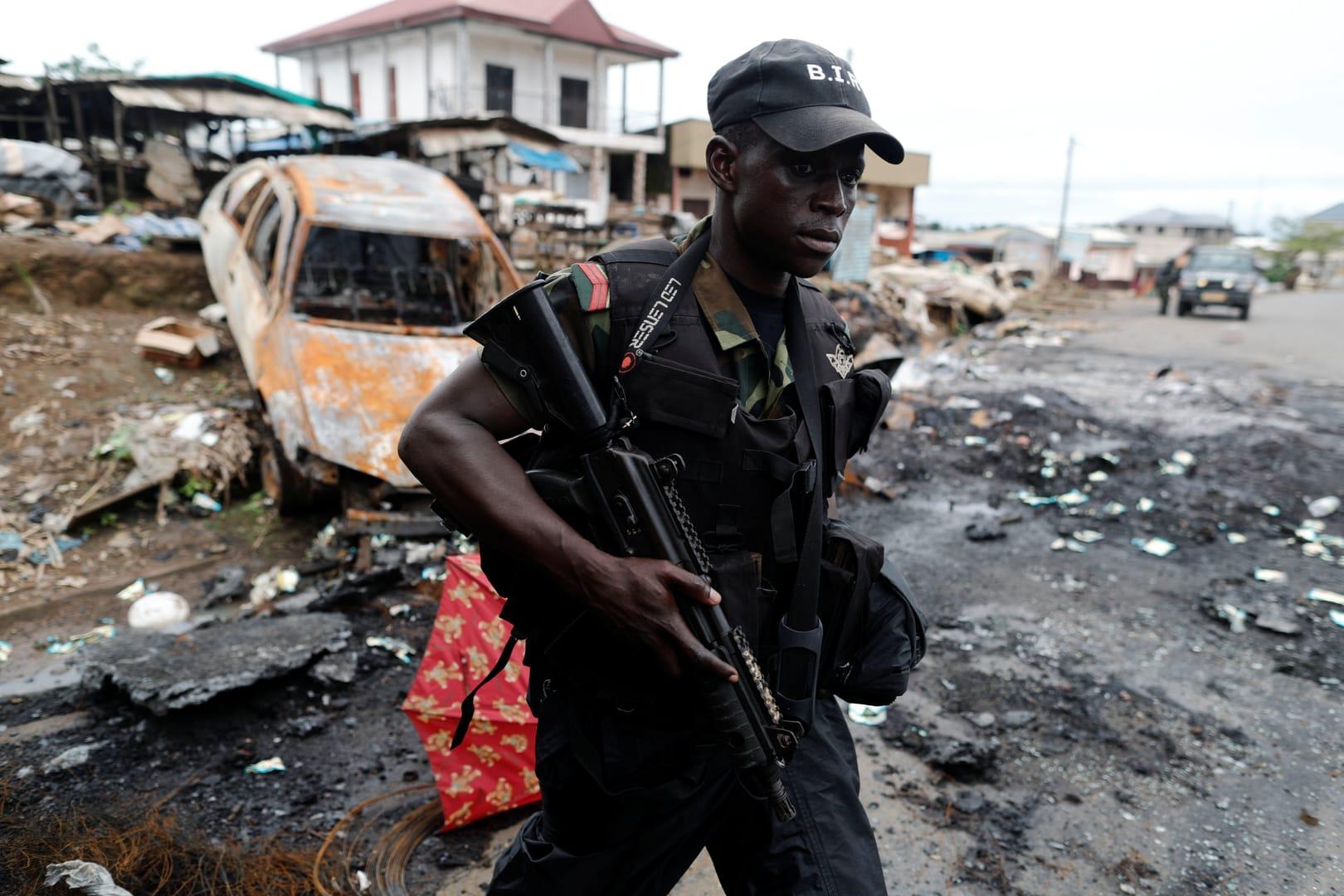YAOUNDÉ, Cameroon — Catholic bishops in Cameroon’s war-torn English-speaking regions said they were left in “shock and utter horror” following the burning of a church and the kidnapping of five priests, a nun and three laypeople.
The incident occurred Sept. 16 at the St. Mary’s Catholic Church in Nchang, in southwestern Cameroon. The people kidnapped were taken to an unknown destination in the surrounding forests.
The kidnappers, identified only as separatists, are asking the church to pay a ransom of $50,000, a request the church has rejected.
“I have spoken to all nine people who were abducted,” Father Christopher Eboka, communications director at the Mamfe Diocese, told Catholic News Service Sept. 21. “They say they have not been tortured but, every day, they are being reminded that if the ransom isn’t being paid, they will be killed one after the other.”
“It was with great shock and utter horror that we, the bishops, learned of the burning down of the St. Mary’s Catholic Church, Nchang,” said a statement signed by Archbishop Andrew Nkea Fuanya of Bamenda, on behalf of the bishops of the Bamenda ecclesiastical province.
The bishops said no reason has been given for the “unprecedented” and “heinous act against the house of God and the messengers of God.”
“We … strongly condemn all these attacks against the church and her ministers, and we appeal to those who have taken the priests, the nun and the Christians in Nchang to release them without further delay.”
“We insist on this because this act has now crossed the red line, and we must say that ‘enough is enough,'” the statement said.
Bishop Aloysius Fondong Abangalo of Mamfe, who visited the burned church in his diocese, reacted angrily.
“When you burn the house of God, you tell Jesus that you don’t want him in your life,” the bishop said.
On Sept. 21, the bishop asked Catholics to storm the heavens with prayers for the victims’ release.
“It is thanks to the prayers so far that I attest that they are alive and strong,” he said.
For about six years now, Cameroon has been reeling from a separatist war, with the country’s two English-speaking regions fighting to break away and form a new nation they call Ambazonia.
The English-speaking part of Cameroon constitutes 20% of the country’s nearly 27 million people.
Conflict broke out in 2016 when Anglophone teachers and lawyers took to the streets to protest what they considered was the overbearing influence of French on the Anglo-Saxon education and Common Law systems practiced in the two regions.
The government responded with lethal force, leading to a hardening of positions. A separatist fringe developed and took up arms to fight for the independence of the two English-speaking regions.
Official figures indicate that at least 4,000 people have been killed, more than 700,000 displaced and about 70,000 have found refuge in Nigeria.
The bishops in their statement said the church has been paying a disproportionate price.
“Since this crisis started in 2016 until today, the people have suffered terribly, and men and women of God have been soft targets of kidnappers, torturers and unscrupulous gunmen. A wave of persecution against the hierarchy of the church is now the new game of the ‘struggle’ and all kinds of threat messages are sent out against missionaries who have surrendered their lives to work for the people,” they said.
They called on those attacking the church to “repent from their evil ways,” because by doing so, they are fighting against God.
“And no one ever fights against God and wins.”
It’s not the first time church officials are being attacked within the framework of the crisis. On April 8, 32 Catholic seminarians and their driver were abducted in Mamfe; they were freed three days after.
Priests and bishops also have been kidnapped.
One of them, Bishop Michael Bibi of Buea, told Catholic News Service that the church will continue to do God’s work, despite the challenges.
“No matter how difficult it is, the priests … will never abandon the people of Christ,” he said.
Cameroon’s bishops have called on the warring parties to silence the guns and give peace a chance, but they also have insisted that peace can only be possible if it comes with justice.














